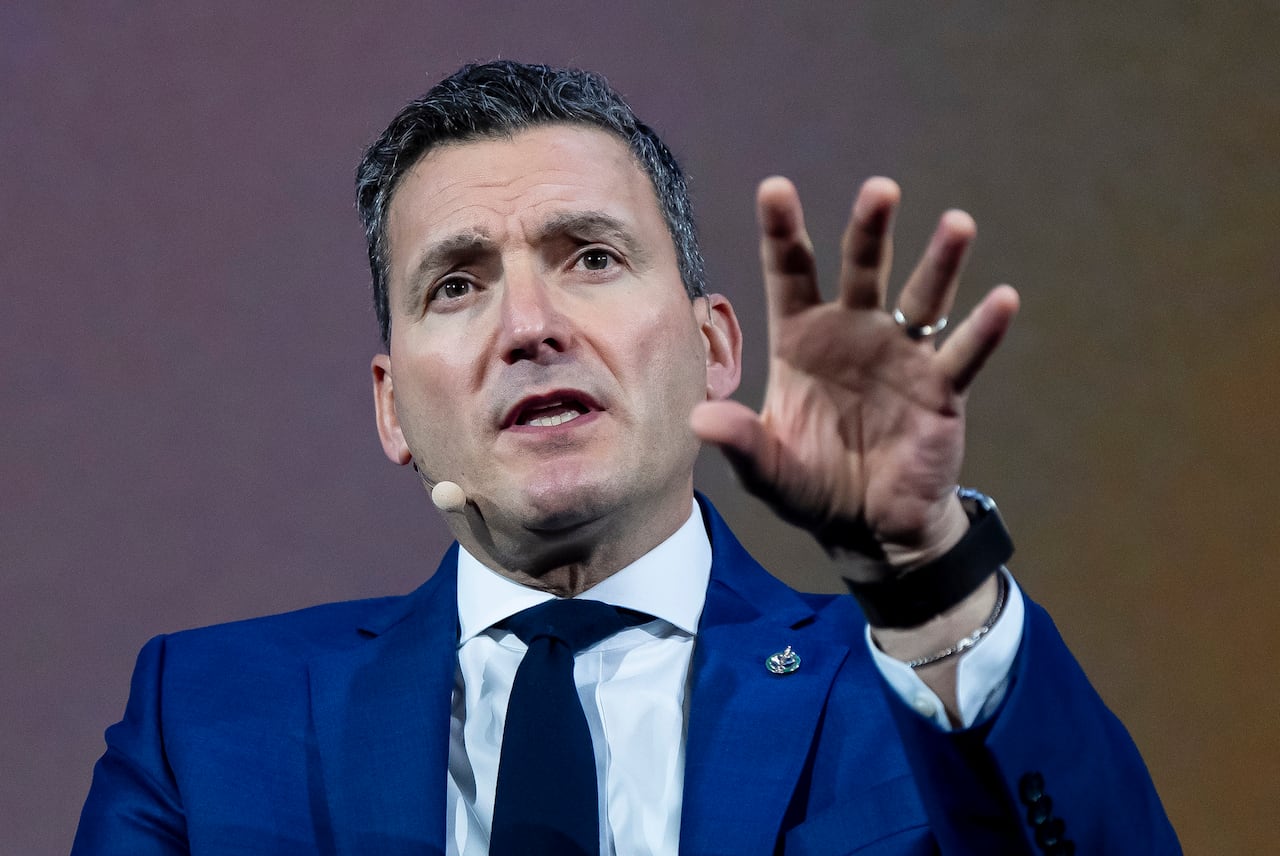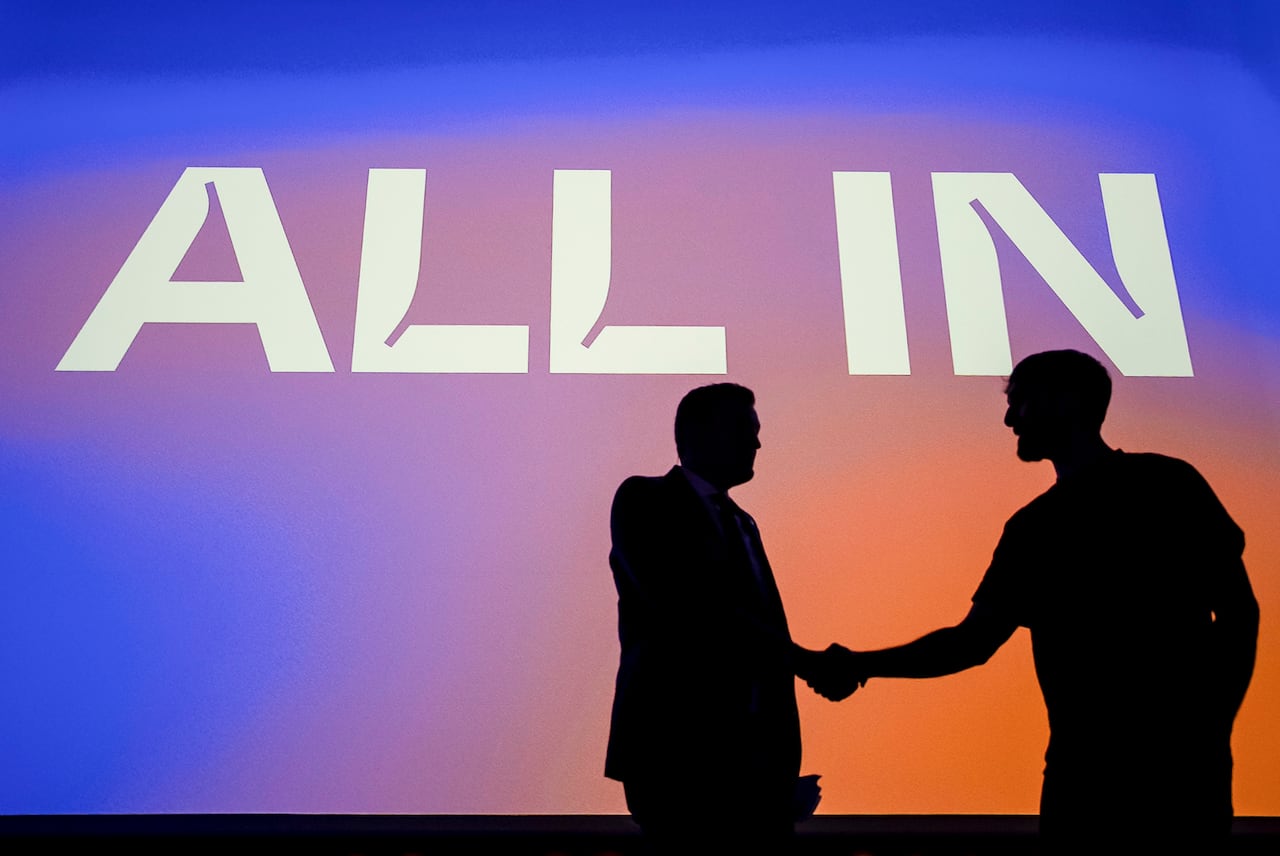One of the world's largest artificial intelligence companies is knocking on Canada's door, potentially armed with an offer that – under normal circumstances – would be hard to refuse.
OpenAI is building a global network of data centers to store the vast amounts of information collected by its services, including ChatGPT, and Canada's cheap energy could help.
The company believes AI and related infrastructure will be the foundation of future economic development and says it wants to help spread what it calls “democratic AI.” It recently launched”OpenAI for countries” to grab this opportunity.
Meanwhile, Canada, wary of an increasingly protectionist U.S. government and the powerful American tech companies subject to its laws, is trying to distance itself from foreign players by building artificial intelligence models at home. And, ironically, OpenAI says it can help facilitate this by building such centers on Canadian soil.
The company is currently considering building data center infrastructure in Canada, drawing on its US$500 billion capital base. Stargate Initiative in the USA and similar projects around the world.
“There are so many different elements that go into building an artificial intelligence model, which Canada has in abundance, whether it's the strength and the resources – and frankly, the means and the desire – to really be a leader in technology,” said Chan Park, head of public policy and partnerships for OpenAI in the US and Canada, during a recent interview with CBC News at Elevate Fest in Toronto.
Park met with key officials, including AI Minister Evan Solomon, to discuss the potential partnership.
Canadian politicians, public policy experts and business leaders are increasingly speaking out about the need for “digital sovereignty,” a term that refers to a country's ability to control its own data and technology infrastructure, including by owning and storing its data within the country.
Canada is at a crossroads as it tries to balance that desire, and a partnership with OpenAI could be an exercise in self-defeat, experts told CBC News. However, they agreed that the country could not risk hindering its own development by completely cutting off access to global companies.
US access to Canadian data
The concern about foreign companies holding Canadian data is that they will be required to comply with their countries' laws, “allowing [the information] so they need to be transported to different countries,” said Jennifer Pybus, assistant professor of political science and Canada Research Chair in Data, Democracy and Artificial Intelligence at York University in Toronto.
“I think people are very concerned that a lot of Canadian data is actually processed by American companies,” she added. “And so Canada wants this agency to have more autonomy and control over the data of Canadians here in Canada.”
Guillaume Beaumier, an assistant professor of political science and international studies at the Ecole Nationale d'Administration Public in Quebec, said he was struck by how OpenAI used digital sovereignty as an international argument for its products.
“But frankly, I think we can be very critical of the extent to which it will be able to achieve and promote greater Canadian sovereignty,” he said, in part because of existing U.S. legislation that limits the country's control over data held by American companies.

CLOUD Act of 2018 gives the US government the right to access data from anywhere as long as it is stored on a server owned by a US company. Canada and the United States have been negotiating a bilateral agreement under the CLOUD Act for three years, but it does not yet exist. A huge portion of Canada's cloud storage servers and data centers are owned by companies like Microsoft, Amazon and Google, meaning Canadian data, even if processed on Canadian soil, is ultimately controlled by the United States, Beaumier said.
American companies have shown that they will comply with US laws rather than those of other jurisdictions. Microsoft executives admitted earlier this year at a French hearing committee that the company “I can't guarantee“Data sovereignty belongs to the member countries of the European Union as they are bound by the CLOUD Act.
Meanwhile, the Canada-U.S.-Mexico Agreement paragraph this limits the ability of countries to control the transfer of data, including personal information, across borders for business purposes. Facebook, for example, could send Canadian data to a center in the U.S. instead of building one in Canada, Beaumier said.
Front burner32:33Inside OpenAI's quest for AI dominance
“One of the main arguments of these companies [is] that they will try to develop technical solutions to avoid having to provide this data to the American government if they are asked to do so,” he said.
“There may be ways to do this—to essentially say, 'We're building something that even we don't have access to and can't then turn over to the U.S. government.' But then we come back to the issue of trust and how much trust we are willing to give these companies.”
Meetings do not constitute approval, minister's office says

In addition to its massive investment in Stargate, OpenAI currently has a number of important contracts with the US government, including an agreement to supply ChatGPT to the entire federal workforce, as well as a recent $200 million contract with the US Department of Defense.
“You still run the risk that if the U.S. government essentially asks a company to stop offering its services in Canada, they might have to do that,” Bohomier said.
Asked if there was any tension at the American company, which has contracts with the US government to create sovereign technologies in countries that are trying to reduce their dependence on the US, Park replied: “not at this moment.”
“We obviously understand the interests of Canadians, the Canadian government and Canadian businesses to make sure that any AI ecosystem that is built here in Canada is truly based on Canadian values,” while respecting privacy interests, he said.
Artificial Intelligence Minister Evan Solomon explains how his new expert group's “30-day sprint” on a revamped artificial intelligence strategy hopes to keep companies and jobs in Canada despite hundreds of billions of dollars in investment from China and Silicon Valley. Solomon argues that Canada is “starting from an incredibly advanced position” in the industry, but also says the country has “challenges with adoption” of AI.
CBC News reached out to Solomon's office to find out about his meetings with OpenAI amid the push for digital sovereignty and whether there will be a partnership with the companywould you come into conflict withwith this strategy.
“Minister Solomon regularly meets with Canadian and international technology leaders to advance Canada's digital and artificial intelligence strategy. These meetings are part of an ongoing engagement and do not constitute an endorsement or active negotiation,” the spokesperson said.
“Our priority is to ensure that any built or digital infrastructure built in Canada—whether by domestic or international partners—operates fully in accordance with Canadian laws and regulations, security and privacy frameworks.”
“We can't fence off the border”
However, experts acknowledged that Canada cannot hinder its own progress in artificial intelligence, lest it be left behind in developing technologies that can transform world economy.
“I think we have to be pragmatic here. We can't fence off the border and think that digital infrastructure is something that Canadian firms can solve alone. No country can do that, not even the United States,” said Benjamin Bergen, president Council of Canadian Innovators.
Canada would gain “some net benefit” from using the expertise of foreign firms to make certain decisions, Bergen added, but warned that any loss of autonomy in those relationships could have consequences.
This only underscores the need for Canada to look within itself for the same technology it has long received from other countries, Bergen and Baumier agreed.
Toronto-bFor example, artificial intelligence company Cohere recently in partnership with the federal government, while other companies pushing Ottawa to implement its own cloud service.

“There are companies in this country that do this. Are they on the scale of Amazon or OpenAI? No,” Bergen said, adding that technology created in Canada could also be sold to other countries trying to limit American or Chinese dependence.
“But it has to start somewhere, by supporting firms that are able to use those forms of digital technology that we consider sovereign and that are simply non-negotiable.”









